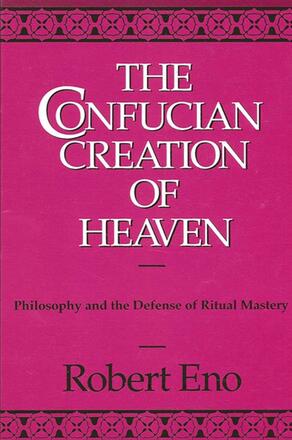
The Confucian Creation of Heaven
Philosophy and the Defense of Ritual Mastery
Alternative formats available from:
This book explores the earliest Confucian texts to find coherent structural principles linking the various facets of Confucian doctrine. Its central theme is that the coherence of early Confucianism emerges only when doctrine is viewed as a function of the unique ritual practice of the early Confucian community.
Description
Demonstrating that the relation between practice and theory in early Confucianism is highly systematic, the author suggests that Confucianism represents a species of 'synthetic' philosophy, distinct from the analytical traditions of the West but equally rigorous in its attempt to disclose the foundations of understanding. He illustrates how theory served as an ancillary activity, expressing ethical insights derived from the systematic structure of core ritual practice, and legitimizing those insights in terms of teleological model of their efficacy in creating a divinely ordained political utopia. The central agenda of the early Confucians is pictured as the preservation and promotion of ritual skills and the aesthetic social perspectives they generate. Metaphysical and political theory serve as practical vehicles mediating between the skill-based philosophy of the early Confucian community and the changing features of the intellectual, social, and political environments in which that community had to survive.
Robert Eno is Assistant Professor of East Asian Languages and Cultures and Adjunct Assistant Professor of Philosophy at Indiana University.
Reviews
"It looks at the Confucians as a school and at their sociological position, not simply at the ideas of the main thinkers. It proposes a conception of the school as developing their own way of conducting private life and rejects the claim (always hitherto accepted) that they were all yearning for public office and failing to get it. This is an entirely original approach." — A.C. Graham, Brown University